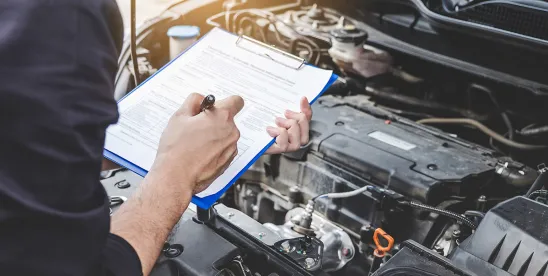As previously reported on our blog, in January 2025, the European Commission launched a Strategic Dialogue on the Future of the Automotive Industry, aimed at addressing the challenges facing the sector. The initiative featured direct engagement by the industry with over 100 organizations, including automotive manufacturers, suppliers, NGOs, and regional representatives. One of the main outcomes of the first Strategic Dialogue was the industry’s successful push to extend the compliance period for emissions targets through the introduction of a three-year compliance averaging period (2025–2027). This targeted amendment was formally approved by the European Parliament and Council and was published in the Official Journal of the European Union on 19 June 2025. It entered into force on 9 July 2025. More can be found on our April blog on the topic
The industry is now turning its attention to the longer-term framework under Regulation (EU) 2023/851, amending Regulation (EU) 2019/631, which sets binding CO₂ reduction targets for light-duty vehicles (LDVs) from 2030 onward. Key targets include:
- 55% reduction for new cars by 2030 (relative to 2021),
- 50% reduction for new vans by 2030,
- 100% reduction for both cars and vans by 2035, effectively a de facto internal combustion engine (ICE) ban.
Although the targets set out in Regulation (EU) 2023/851, particularly the 100% CO₂ emissions reduction requirement for new cars and vans by 2035, remain legally binding, they are under increasing political and industry scrutiny. There is growing pressure from several Member States, segments of the automotive sector, and parts of the European Parliament to revisit, amend, or even repeal the effective ban on internal combustion engine (ICE) vehicles.
As part of the Automotive Sector Industrial Action Plan, the Commission has pledged to accelerate the review and revision of the regulatory framework, an obligation already foreseen under the legislation, acknowledging the need to take into account market realities, technological progress, and stakeholder concerns. In the upcoming review, the Commission has committed to considering greater regulatory flexibility, simplification and reduction of administrative burdens, progress toward the 2035 targets, and the evolving role of alternative fuels, particularly e-fuels and biofuels.
While the Commission has not yet indicated how it will proceed, it is fair to expect that this revision process could open the door to potential adjustments, or even rollbacks, of some of the key provisions of the 2023 legislation, including the 2035 zero-emission target.
Call for Evidence is Now Open
A call for evidence is now open to gather input specifically on the forthcoming revision of Regulation (EU) 2019/631, including the possibility of reassessing how – and whether – the effective combustion engine ban will be implemented. Stakeholders, including industry representatives, NGOs, and members of the public, may submit feedback until September 29, 2025.
Importantly, the consultation will close shortly after the next high-level Strategic Dialogue, scheduled for September 12, 2025, between top industry CEOs and Commission President Ursula von der Leyen. As outlined above, the first two strategic dialogues played a central role in shaping the Automotive Sector Industrial Action Plan and accelerating the timeline for reviewing emissions legislation. It is therefore reasonable to expect that the outcomes of both the consultation and the upcoming dialogue will significantly inform the Commission’s approach to revising the combustion engine phase-out currently foreseen for 2035.
Combustion Engine Debate – E-fuels and Biofuels
At the heart of the debate is the role of combustion engines in a decarbonized future, which remains a highly contentious issue. Opponents of a full ICE phase-out advocate for a technology-neutral approach that recognizes the potential of cleaner fuels. Biofuels, while still emitting CO₂, are derived from renewable biomass and are often viewed as more climate-friendly than traditional fossil fuels. E-fuels, produced using captured CO₂ and renewable electricity, are promoted as carbon-neutral over their entire lifecycle. Supporters of preserving combustion engine technology, including certain lawmakers and industry stakeholders, argue that maintaining this option could provide Europe with a strategic competitive advantage, especially in light of China’s growing dominance in electric vehicle manufacturing.
Against this backdrop, the Commission has recently suspended the adoption of secondary legislation that would have defined the role of e-fuels-only vehicles within the current emissions framework. Instead, this matter is now expected to be addressed under the forthcoming Euro VII Implementing Regulations. Furthermore, the Delegated Act specifying how e-fuels-only vehicles could contribute to CO₂ fleet reduction targets has been shelved indefinitely.
Key Takeaways for Clients
Given the rapidly evolving regulatory landscape and the ongoing debates surrounding the future of automotive emissions, we stand ready to assist clients in navigating these complex developments. Among the critical topics currently under discussion, such as the potential revision of the combustion engine ban and the role of e-fuels and biofuels, we can support clients in closely following the policy debate and actively informing their positions. This phase is particularly important, as the Commission is openly engaging with stakeholders and attentively considering their concerns.
Manufacturers and other stakeholders are encouraged to participate actively in the ongoing public consultation and to monitor the outcomes of the upcoming strategic dialogue in September, as these will significantly influence the future regulatory environment.





 />i
/>i

